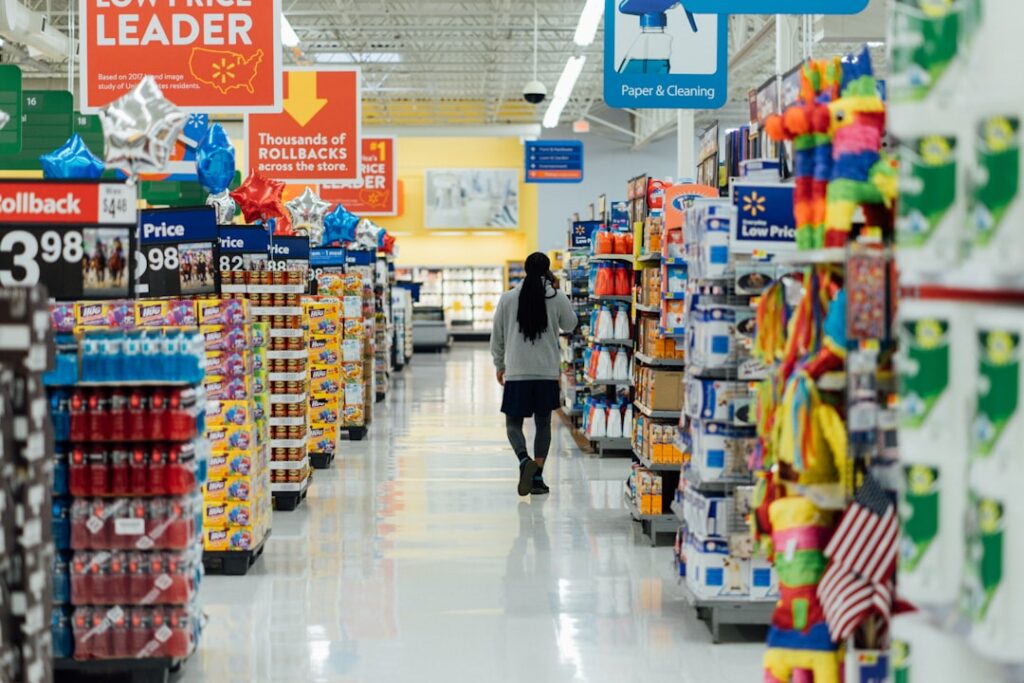Devastating cuts are on the table for communities across the country and the more than 1.4 million North Carolinians who rely on food stamps.
By Gwen Frisbie-Fulton
Beacon Media

The line went out the door. Not just out the door but across the lawn, onto the sidewalk, and down the street. I saw a grandmother with bags tied to her walker, families with young children, a veteran in a motorized wheelchair with two small American flags taped onto it, fluttering in the morning breeze.
I had been working at Second Harvest Food Bank for a few years, and the line at this food distribution site surprised even me. It was a Wednesday morning and the food bank had milk and sweet potatoes to deliver, all part of a government buy-back program to help farmers and families alike.
I remember looking at all the people and thinking: This might be the biggest gathering of people in High Point today.
That was in 2019, before the pandemic and before food insecurity rates began rapidly climbing across the country. Three years later in 2022, the Second Harvest network was serving 35,300 people a month in northwest North Carolina; today they say that number has doubled.
This doesn’t surprise those of us who have been robbing Peter to pay Paul at the grocery store lately. With inflation, our dollars just don’t go as far. Grocery prices have risen sharply over the last five years.
Experts say this results from everything from the war in Ukraine to supply chain bottlenecks. I don’t doubt them, but I also know that retailers are making record profits. According to the Federal Trade Commission, grocery chain profits spiked 11 percent between 2021 and 2022.
I also know that I’m paying well over a dollar more for eggs than I was a year ago and there’s no sign of relief. It’s no surprise, given these conditions, that food insecurity is on the rise.
I bet you wouldn’t know this by walking the halls of Congress these days. There, the enormous burden of inflation and the long and growing lines at food pantries seem to be a faraway concern. Instead of responding to the growing economic crisis impacting Americans across region, race, age, and political persuasion, our elected officials are trying to push through cuts to the Supplemental Nutrition Assistance Program (SNAP) program up to 30 percent — the biggest cut in the program’s nearly 80 year history.
There is no way that the charitable food bank network — as big and robust as it is — can make up for these devastating cuts. SNAP is, by far, the most efficient and cost-effective way to make sure that people in our communities have enough to eat. What’s more, grocers in poor and working-class neighborhoods like mine, as well as rural communities, rely on SNAP dollars to stay open.
I asked my neighbor why she thought Congress was so eager to slash SNAP funding when so many people are in need. It can’t be because they want to encourage work, as some of them so meekly say, since the majority of SNAP recipients already work, data show. My neighbor’s take was that cruelty is the point.
The budget bill with the cuts in it passed narrowly in the U.S. House. As the SNAP cuts move to the U.S. Senate, I can’t see into the souls of my representatives. I can’t know Sen. Thom Tillis’ heart or if he will support such hardship in his constituents’ lives. Sen. Ted Budd has not spoken publicly about the budget bill, but he usually says he supports President Trump, who has championed the bill, perhaps even over his constituents.
I don’t think we have to be all-seeing to understand what is happening in Washington. There is an obvious explanation in plain sight: Congress is beholden not to the American people but to billionaires. Our “representatives” are willing to hurt the 42 million Americans who need SNAP to buy groceries for their families to give tax cuts to the rich, who are eating just fine. In North Carolina, it would mean cutting assistance to buy food for 1.4 million, or 13 percent, of all North Carolinians who rely on SNAP.
I may not know Thom Tillis’ or Ted Budd’s or any of our other representatives’ heart of hearts, but I do know that it’s cowardly to hurt children, seniors, parents, and veterans. It’s cowardly to blame them, to scapegoat them, for a disastrous economy they did not make but seem to bear all the brunt of.
I bet they couldn’t explain themselves or why they support these SNAP cuts if they had to stand outside that church in High Point, within earshot of that long line.